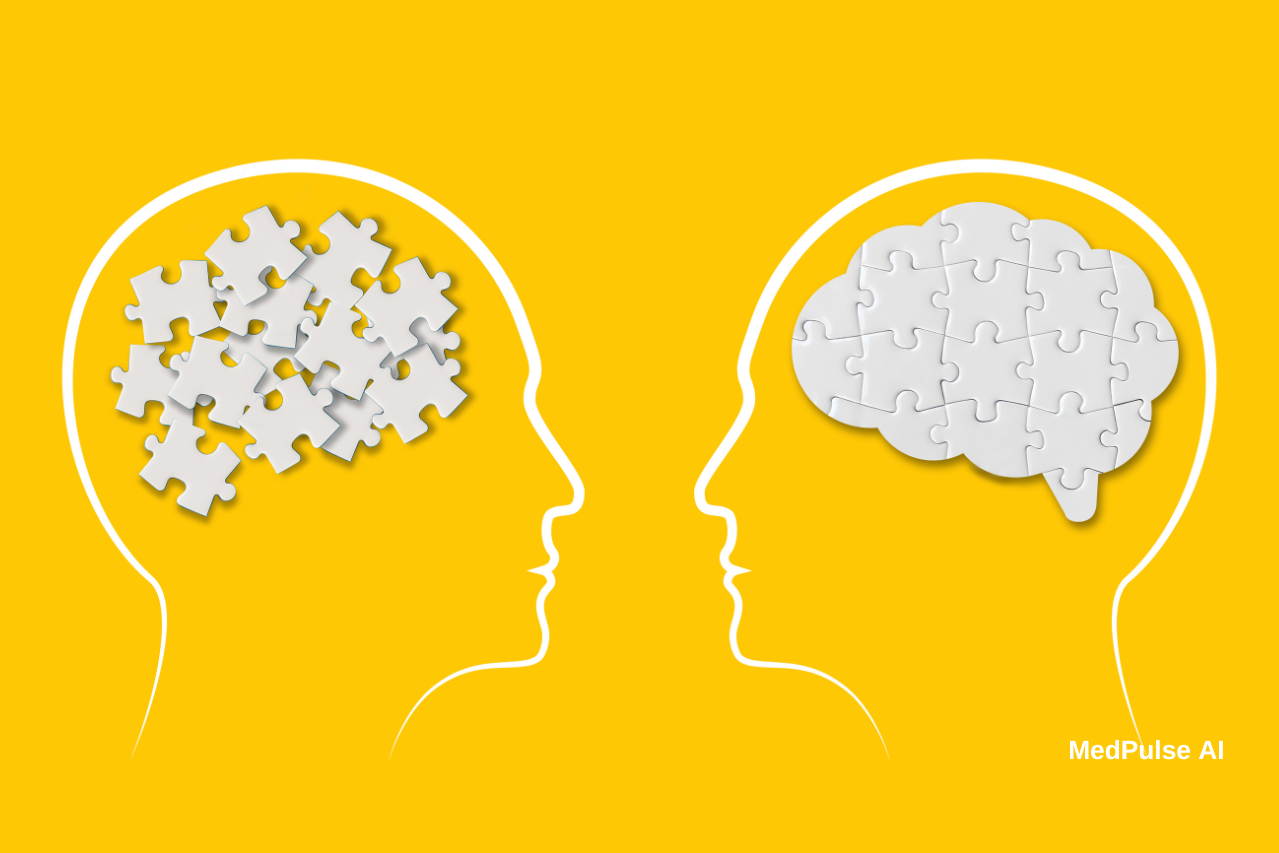As the digital age progresses, mental health care is evolving, particularly for teens navigating the complex world of social media, academic pressures, and personal challenges. Artificial intelligence (AI) is slowly becoming a go-to tool for teens looking for mental health support. From chatbots that provide immediate support to data-driven insights that help identify trends in mental health, AI is opening new avenues for understanding and supporting the mental well-being of young people.
Understanding Teen Mental Health
According to the National Institute of Mental Health (NIMH), mental health disorders affect approximately 20% of adolescents each year. This data reflects the prevalence of conditions such as anxiety, depression, and behavioral disorders among teens in the U.S.
Conditions such as anxiety, depression, and behavioral disorders can significantly impact their academic performance, relationships, and overall quality of life. As teens often turn to technology for support, AI is becoming crucial to their mental health care. By offering accessible and personalized resources, AI may help bridge the gap between adolescents and the mental health support they need.
How AI is Transforming Teen Mental Health Care
Chatbots and Virtual Therapists: One of the significant applications of AI in mental health is the development of chatbots and virtual therapy platforms. These AI-driven tools offer immediate, anonymous support for teens who may be reluctant to seek help from a human therapist. For example, platforms like Woebot and Wysa use conversational AI to engage users in mental health check-ins, provide coping strategies, and promote positive thinking.
Woebot was created by Dr. Alison Darcy, a clinical psychologist and health tech entrepreneur. She founded Woebot Health (formerly Woebot Labs) in 2017 with the goal of making mental health care more accessible through the use of AI-driven conversational agents. Woebot was designed to leverage evidence-based cognitive-behavioral therapy (CBT) techniques to support users with their mental well-being.
Wysa was co-founded by Jo Aggarwal and Ramakant Vempati in 2016. Jo Aggarwal, a seasoned entrepreneur, created Wysa with the vision of using AI to deliver emotional support in a way that is private, accessible, and stigma-free. Ramakant Vempati, with a background in AI and healthcare, helped build Wysa’s AI-driven platform to support users with their mental health using CBT, mindfulness, and other therapeutic approaches.
Predictive Analytics: AI can analyze vast amounts of data to identify patterns and trends in teen mental health. By monitoring social media posts, online behavior, and self-reported data, AI algorithms can help identify at-risk individuals and predict mental health crises before they escalate. This proactive approach allows for timely interventions, potentially preventing severe mental health issues.
Emotion Recognition: AI systems are now capable of analyzing vocal tone, facial expressions, and text sentiment to assess emotional states. This technology can help identify when a teen is experiencing heightened anxiety or depression, allowing for timely interventions or recommendations for further support.
Teletherapy Integration: Many AI platforms now integrate seamlessly with teletherapy services, allowing teens to transition from chat-based support to video therapy sessions with licensed professionals. This integration ensures that adolescents receive comprehensive care tailored to their needs.
Personalized Mental Health Apps: AI is being used to create personalized mental health applications that adapt to the user’s behavior and preferences. These apps can provide tailored coping strategies, mindfulness exercises, and emotional check-ins based on the individual’s unique experiences and challenges.
Gamification of Mental Health Support: AI is enabling the development of gamified mental health applications that engage teens in interactive ways. These platforms often include challenges, rewards, and social interactions to motivate teens to participate in mental health activities, making support more appealing and accessible.
Enhanced Accessibility: AI-driven tools can provide mental health resources in multiple languages and formats, making them more accessible to diverse populations. This includes creating content tailored to different cultural backgrounds and literacy levels.
Community Support Platforms: AI is facilitating the creation of online communities where teens can connect with peers facing similar challenges. These platforms can provide a sense of belonging and support, helping to reduce feelings of isolation. The American Psychological Association (APA) has highlighted how AI is being integrated into online mental health platforms, which enable the creation of peer support communities. These platforms allow users, including teens, to connect with others experiencing similar challenges, offering emotional support and reducing feelings of isolation.
Personalized Resources: AI can tailor mental health resources to meet the unique needs of each adolescent. By analyzing individual preferences and behaviors, AI can recommend specific coping strategies, educational content, or support groups that align with a teen’s interests and challenges. This personalized approach increases engagement and the likelihood of positive outcomes.
Reducing Stigma: The stigma surrounding mental health, particularly among teens, can act as a barrier to seeking help. AI tools offer a discreet way for adolescents to explore mental health issues without the fear of judgment. By providing accessible information and support, AI can help normalize conversations around mental health, encouraging more teens to seek the help they need.
The Role of Parents in Supporting Teen Mental Health and AI Integration
Parents play a vital role in the mental health of their adolescents, especially as AI technologies become more integrated into mental health support systems. Parental involvement can enhance the effectiveness of these tools and ensure that teens feel supported in their mental health journeys.
- Open Communication: Parents should foster open and honest conversations about mental health. This helps create a safe space for teens to share their thoughts and feelings. When parents are informed about AI tools their children may be using, they can provide guidance and context.
- Encouraging Responsible Use of AI: Parents can guide their teens in using AI tools responsibly, discussing the benefits and limitations. It’s essential for teens to understand that these tools are not a replacement for professional help but rather a supplement to traditional resources.
- Monitoring Mental Health: Parents should actively monitor their teen’s mental health, especially if they notice changes in behavior, mood, or academic performance. Encouraging the use of AI tools can be part of this process, but parental engagement is critical.
- Parental Consent and Awareness: Many AI platforms require parental consent before minors can access their services. This consent ensures parents are aware of the tools their teens are using, fostering a collaborative approach to mental health care.
- Modeling Healthy Behaviors: Parents can set an example by discussing their mental health openly and modeling healthy coping strategies. Demonstrating that it’s okay to seek help encourages teens to do the same.
- Education and Resources: Parents can educate themselves about AI tools and mental health resources, helping to guide their teens in selecting appropriate options and participating in discussions about mental health.
- Seeking Professional Help: Parents should recognize when their teens need professional help. Encouraging conversations with counselors or therapists, especially when using AI tools, ensures comprehensive care tailored to individual needs.
Challenges and Considerations
While the potential of AI in supporting teen mental health is vast, several challenges must be addressed:
- Data Privacy: The use of AI tools often requires the collection of sensitive data. It is crucial to ensure that this data is handled securely and ethically, with strict privacy protections in place.
- Quality of Support: While AI chatbots can provide valuable resources, they cannot replace the nuanced understanding and empathy offered by human therapists. Integrating AI tools with traditional mental health services is essential for comprehensive care.
- Digital Divide: Not all teens have equal access to technology, which may limit the effectiveness of AI-driven mental health resources for those in low-income or underserved communities.
The Future of AI and Teen Mental Health
As research continues and technology advances, the role of AI in teen mental health is likely to expand. Innovations in natural language processing and machine learning will enhance the capabilities of AI tools, making them more effective in identifying and addressing the mental health needs of adolescents.
Collaboration between technologists, mental health professionals, and educators will be critical in shaping AI applications that serve the needs of teens. By prioritizing user experience and ethical considerations, we can create AI solutions that empower adolescents to take charge of their mental well-being.




